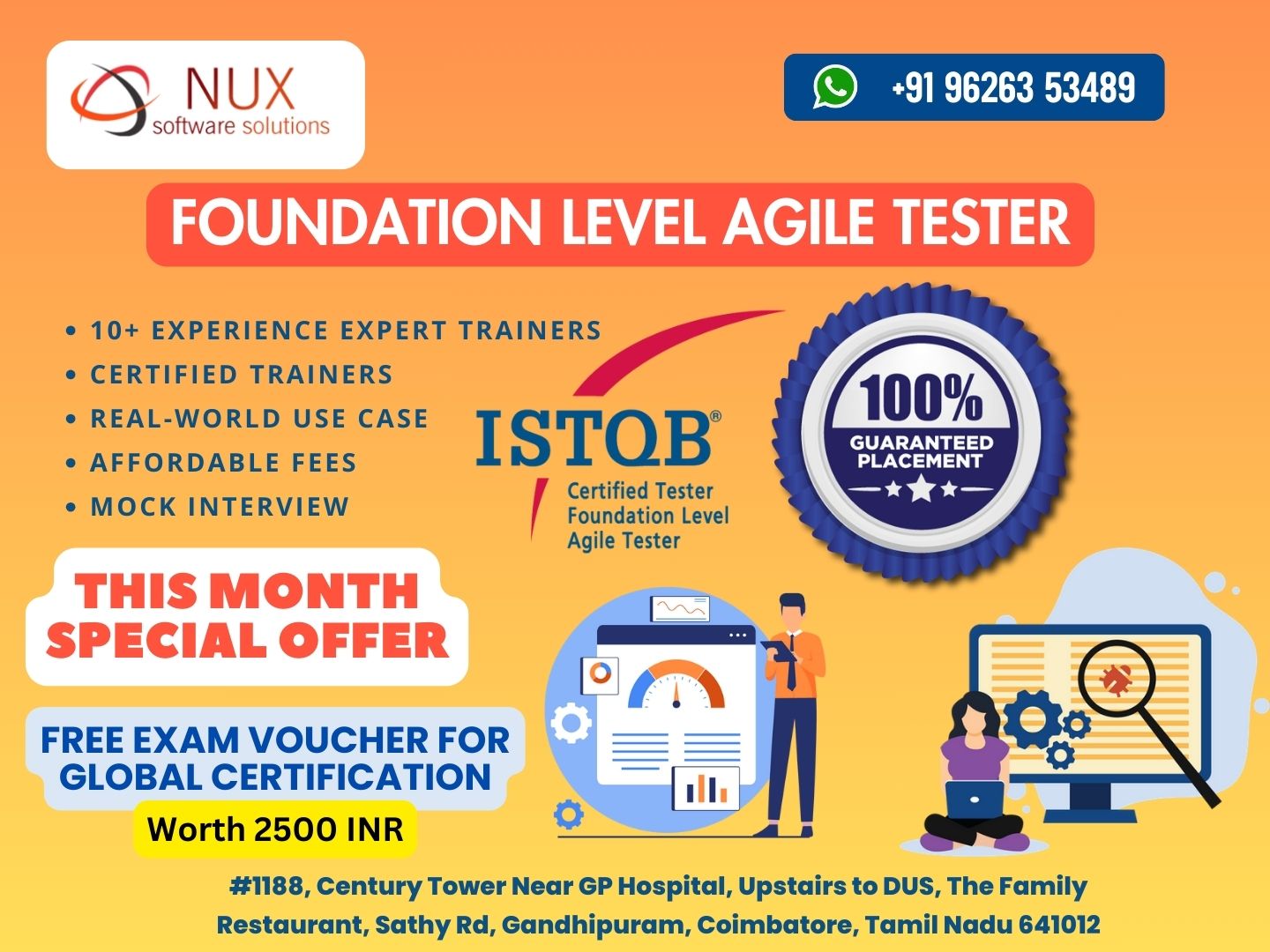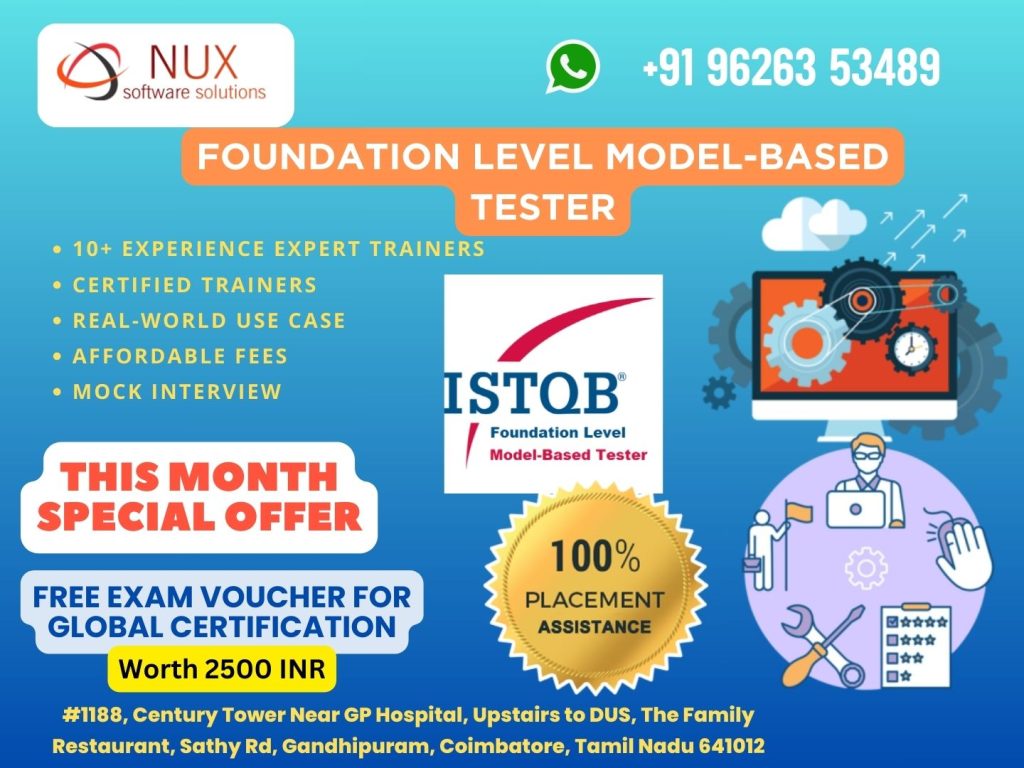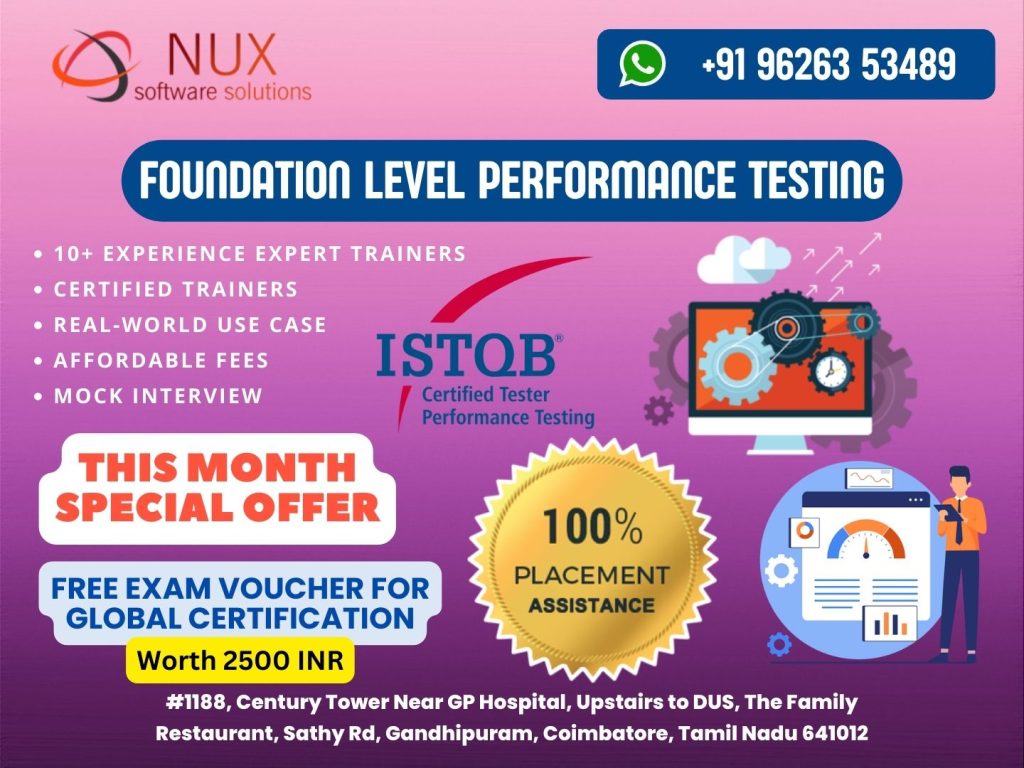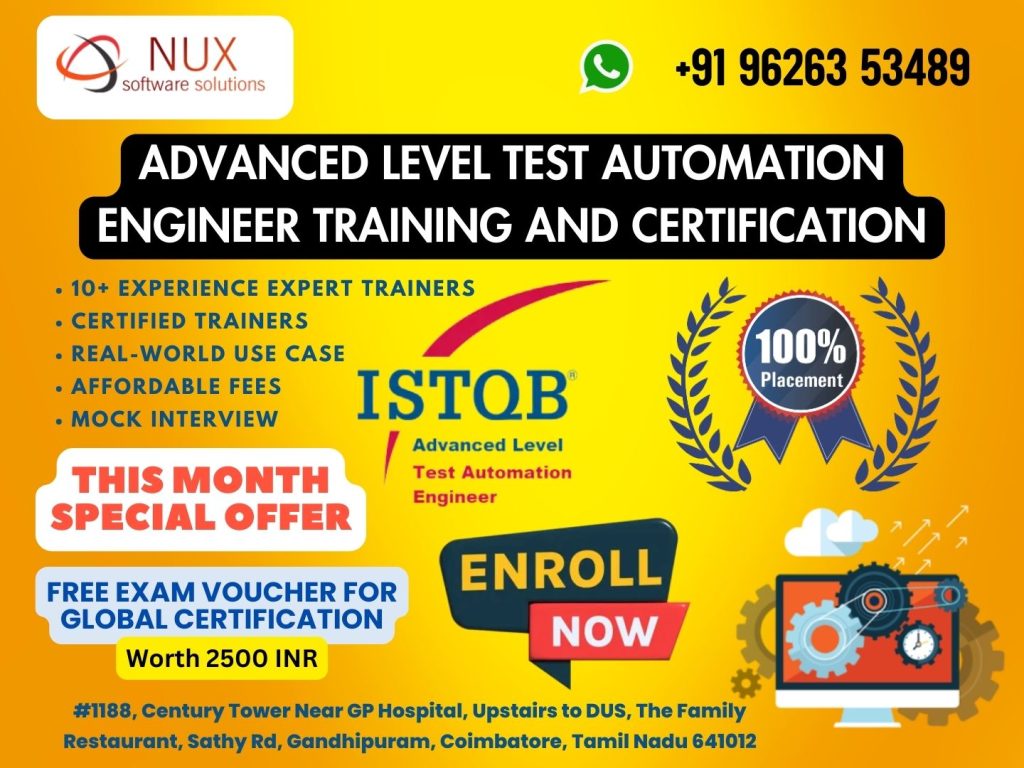Foundation Level Agile Tester

ISTQB Foundation Level Agile Tester Certification Course – Coimbatore
Course Overview
The ISTQB Foundation Level Agile Tester course is designed for software testers who are working, or plan to work, in Agile environments. This globally recognized certification bridges the gap between traditional software testing and Agile practices by equipping professionals with the essential knowledge, terminology, and practices relevant to Agile software development.
In today’s fast-paced development cycles, Agile teams require testers who understand how to adapt their techniques and mindset. This course provides a solid foundation in Agile testing principles, including Agile testing roles, Agile methodologies such as Scrum and Kanban, user story creation, test-driven development (TDD), and acceptance test-driven development (ATDD).
Whether you are a beginner in Agile or transitioning from a traditional QA role, this course prepares you for collaborative team environments and rapid, high-quality software releases. It also serves as a stepping stone to more advanced Agile certifications.
What You’ll Learn
Agile software development fundamentals
The role of a tester in Agile projects
Agile testing methods and approaches
Agile test planning and estimation
Test techniques and tools used in Agile environments
Collaboration and communication in Agile teams
Agile quality risks and metrics
Who Should Enroll?
Software testers entering Agile projects
QA professionals working in traditional models looking to upskill
Scrum team members including developers and product owners
Anyone planning to take the ISTQB Foundation Level Agile Tester certification exam
Key Benefits
Gain in-demand skills aligned with Agile methodologies
Improve collaboration and communication within Agile teams
Understand how to deliver quality in iterative development cycles
Prepare confidently for the ISTQB Agile Tester certification
Learn with real-world Agile testing examples and exercises
Why Train With Us in Coimbatore?
Industry-certified Agile instructors with hands-on experience
Practical sessions simulating Agile sprints and ceremonies
Updated curriculum tailored for real project needs
Access to sample questions and mock tests
Personalized guidance and post-training support
Join our ISTQB Foundation Level Agile Tester course in Coimbatore and become a versatile tester ready to thrive in modern Agile environments.
Course Syllabus
Modules
Introduction to this Syllabus
0.1 Purpose of this Document
0.2 Overview
0.3 Examinable Learning Objectives
1.0 Agile Software Development
1.1 The Fundamentals of Agile Software Development
1.1.1 Agile Software Development and the Agile Manifesto
1.1.2 Whole-Team Approach
1.1.3 Early and Frequent Feedback
1.2 Aspects of Agile Approaches
1.2.1 Agile Software Development Approaches
1.2.2 Collaborative User Story Creation
1.2.3 Retrospectives
1.2.4 Continuous Integration
1.2.5 Release and Iteration Planning
2.0 Fundamental Agile Testing Principles, Practices, and Processes
2.1 The Differences between Testing in Traditional and Agile Approaches
2.1.1 Testing and Development Activities
2.1.2 Project Work Products
2.1.3 Test Levels
2.1.4 Testing and Configuration Management
2.1.5 Organizational Options for Independent Testing
2.2 Status of Testing in Agile Projects
2.2.1 Communicating Test Status, Progress, and Product Quality
2.2.2 Managing Regression Risk with Evolving Manual and Automated Test Case
2.3 Role and Skills of a Tester in an Agile Team
2.3.1 Agile Tester Skills
2.3.2 The Role of a Tester in an Agile Team
3.0 Agile Testing Methods, Techniques, and Tools
3.1 Agile Testing Methods
3.1.1 Test-Driven Development, Acceptance Test-Driven Development, and Behavior-Driven Development
3.1.2 The Test Pyramid
3.1.3 Testing Quadrants, Test Levels, and Testing Types
3.1.4 The Role of a Tester
3.2 Assessing Quality Risks and Estimating Test Effort
3.2.1 Assessing Quality Risks in Agile Projects
3.2.2 Estimating Testing Effort Based on Content and Risk
3.3 Techniques in Agile Projects
3.3.1 Acceptance Criteria, Adequate Coverage, and Other Information for Testing
3.3.2 Applying Acceptance Test-Driven Development
3.3.3 Functional and Non-Functional Black Box Test Design
3.3.4 Exploratory Testing and Agile Testing
3.4 Tools in Agile Projects
3.4.1 Task Management and Tracking Tools
3.4.2 Communication and Information Sharing Tools
3.4.3 Software Build and Distribution Tools
3.4.4 Configuration Management Tools
3.4.5 Test Design, Implementation, and Execution Tools
3.4.6 Cloud Computing and Virtualization Tools



